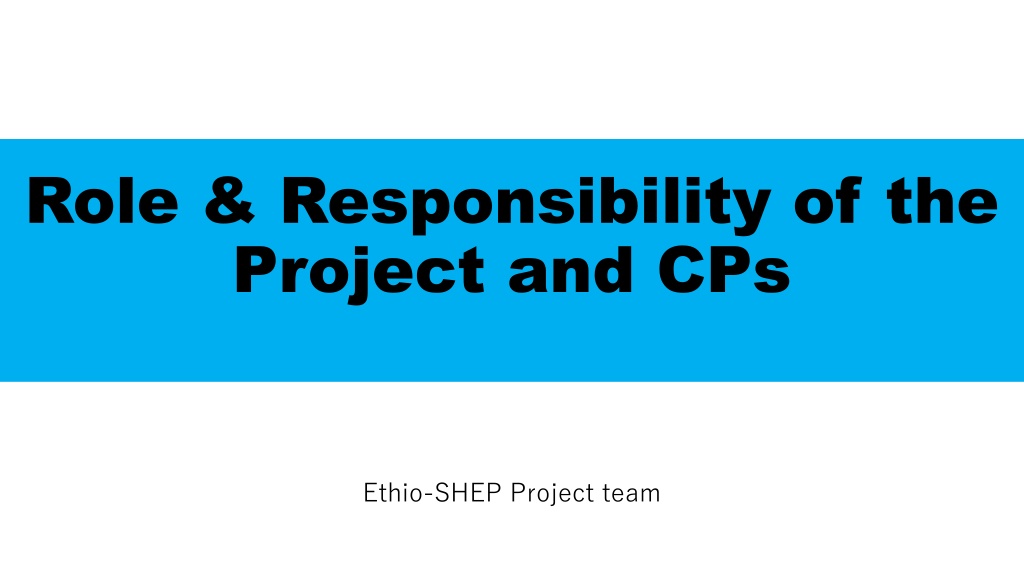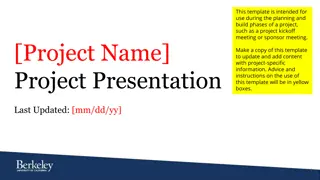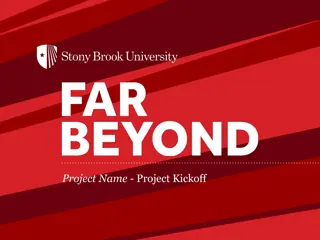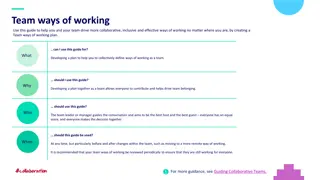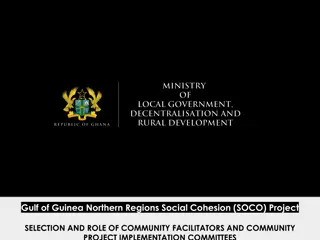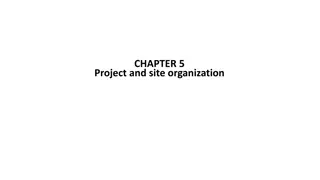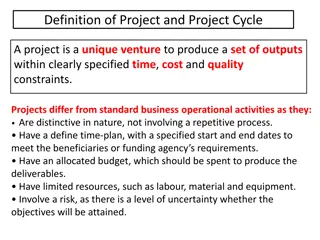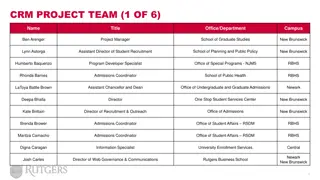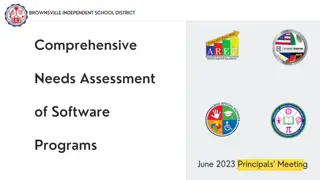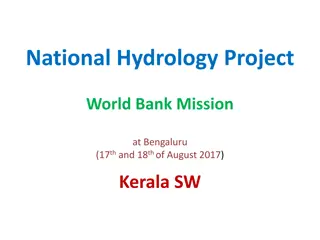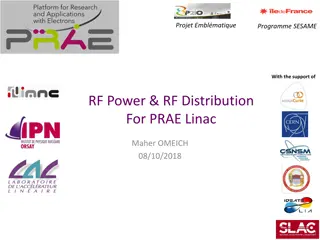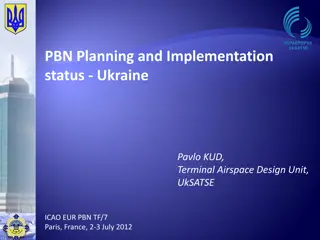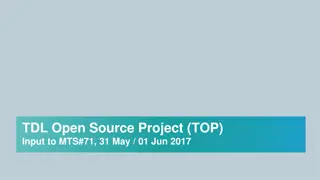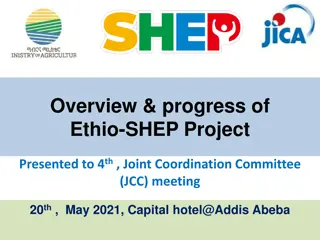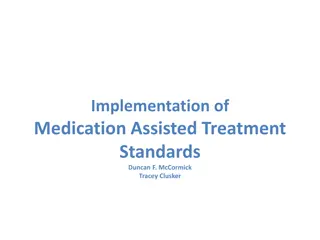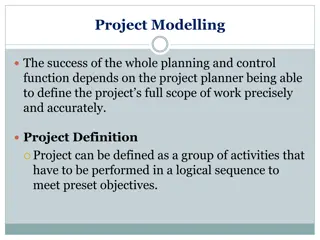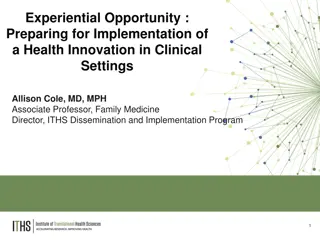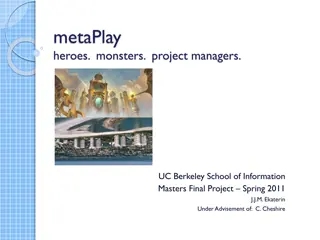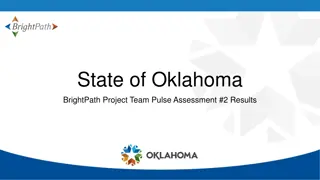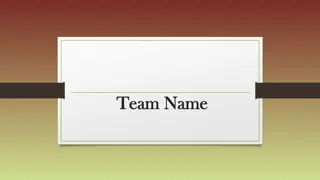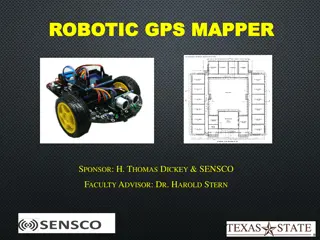Overview of Ethio-SHEP Project Team and Implementation Structure
The Ethio-SHEP project aims to strengthen extension services using a market-oriented approach. The project team includes Japanese experts and Ethiopian national staff, each with specific roles and responsibilities. Implementation is structured based on the existing government setup, with focal persons assigned at different levels. Community Promoters (CPs) play a key role in implementation, monitoring, and scaling up the project. The intervention focuses on technical cooperation for capacity building of experts and farmers, with actual implementation done by CPs.
- Ethio-SHEP Project
- Implementation Structure
- Japanese Experts
- Market-oriented Extension
- Community Promoters
Download Presentation

Please find below an Image/Link to download the presentation.
The content on the website is provided AS IS for your information and personal use only. It may not be sold, licensed, or shared on other websites without obtaining consent from the author. Download presentation by click this link. If you encounter any issues during the download, it is possible that the publisher has removed the file from their server.
E N D
Presentation Transcript
Role & Responsibility of the Project and CPs Ethio-SHEP Project team
General idea of Project Implementation General idea of Project Implementation Objective of intervention is to strengthen the existing extension service by using Market-oriented extension(SHEP approach) So implementation is based on the existing government extension structure (Federal ,Region ,Zone, Woreda, Kebele) Assignment of Focal person at each level: region,zone,woreda & kebele (*Woreda: 2 :Process owner & Focal person)
Project Implementation Structure Project Implementation Structure Based on the existing government Structure MoA AGP General Extension Directorate Horticulture Development & Technology Transfer Directorate Federal Level Research Ethio-SHEP Project Team OBoANR ABoA Regional Level Zone (ZAO) Zone (ZAO) Zonal Level Woreda Level Woreda (WAO) Woreda (WAO) DAs DAs Cooperative Trader Kebele level Farmer Groups Input Supplier 3 Water User s Association (WUA) Retailer
Role & Responsibility of CPs 1.Implementation within the existing extension system: woreda & Kebele 2.F/U of the activity: woreda & kebele 3.Reporting and documentation: region ,zone ,woreda and kebele (*Incorporate into regular reporting system) 4.Monitoring and Evaluation: region , zone & woreda 5.Scale-up and create synergy with Project intervention & regular extension program: region ,zone ,woreda & kebele
Project Intervention Modality Technical cooperation project based on the bilateral government agreement Focus on capacity building of experts & farmers No direct budget support for woreda (*But Activity based per-dim payment & support) (*Per-dim rate based on Harmonized DSA set by MoFC) *Actual Implementation is done by CPs, not by the project
Ethio-SHEP project team Japanese experts: Chief Advisor/SHEP approach(1) Technical advisor(Horticulture)(1) Coordinator/Training(1) Ethiopian national staffs: National SHEP coordinator(1) Office management(1) Regional technical advisor(1+1) Driver(3)
Role & Responsibility of the Project 1.Technical support :Organizing ToT for implementors 2. Financial support for implementation: 3. Organizing SHEP related event: *Back support and monitoring: *Overall management of the project:
Project support for the implementation 1. Technical support: Organizing ToT for experts: SHEP activity steps Support for In-field technical training :Extension materials & package Technical training ToT *Participants of those ToT (specially woreda and kebele experts)will be the actual implementor of the activity. *The project will take the role of back supporter.
Project support for the implementation 2. Financial support: Fuel cost support for F/U by CPs: (By their own motor bikes) Support for communication : (Communication & Mobilization of target group) Support of per-dim for F/U(*Specific activity): *Based on the report and actual performance ,it will be checked and settled by the project.
Project support for the implementation 3. Arrangement of Event: Organizing Market Linkage Forum: Organizing Exchange visit or Field day(New groups) : (*New group can choose the option :Exchange visit or Field day). (*Woreda is expected to organize Field day
Project support for the implementation *Support for Demonstration program: The project support only for new groups (Based on the consultation and consensus among the Stakeholders, if the Demo is necessary for the target group ,,,,.(Demo is optional,,,) Input and technical support only but overall F/U responsibility & management is by woreda & kebele and target group members. (If those points are agreed ,the project will support,)
General idea of Project intervention for farmer groups 3rdyear groups(new):The project and CPs jointly Actual activities will be decided based on the result of consultation with the groups & CPs. (*Current woreda) 2ndyear groups: F/U and support for specific gaps identified through 1styear intervention. (Not full package,,) 1styear groups: Handing over to CPs and support through regular extension service by CPs.
